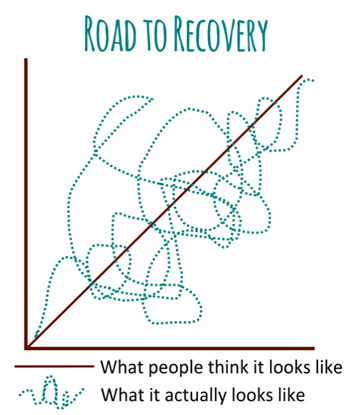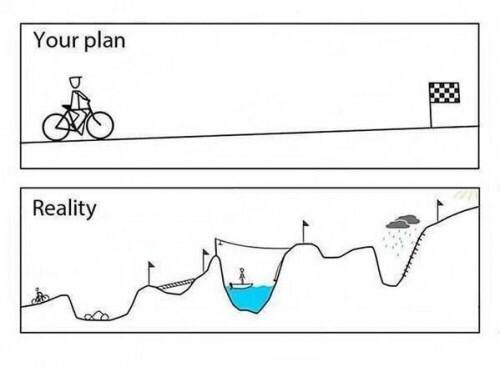How to Get the Most Out of Therapy

Overview
Although many people are in a hurry to find solutions to their problems, good quality therapy takes time. If you do not understand how therapy works (or your role as a client), you could miss out on making the most out of your therapy journey. Unlocking the full potential of therapy requires more than simply attending sessions on time — it requires active participation, working towards therapy goals, clear communication, and effort to match the results that you are expecting. Good therapy can be transformative, but it is crucial to embark on this journey with understanding and purpose. The following page aims to give you a better understanding of how therapy works and to help you prepare with essential tools so that you can get the most out of your therapy journey. Remember, your journey towards well-being and healing is unique—embrace it with patience, commitment, and the courage to make use of the support and safeness that therapy can provide.
Your Job as the Client
While it’s true that effective therapy ultimately empowers people to become their own therapists—where you have insight into the roots of your ongoing struggles and have developed necessary skills for ongoing personal growth—it is crucial to recognize that therapy is not merely a process imposed upon you. This is because your active engagement significantly influences the outcome, shaping the trajectory of your therapeutic journey.
We have known for decades that the therapeutic relationship stands as the cornerstone of successful psychotherapy, often surpassing the significance of specific therapeutic models or approaches. After all, therapy is an interpersonal exchange! On the one hand, this means that your therapist understands your goals for therapy, is someone you feel you can trust, and is someone who has the skill to empower you to self-reflect, heal, and grow in order to reach your goals. On the other hand, even with the world’s best therapist, your success in therapy is also dependent on you.
In the initial sessions of therapy, your job is to assess the compatibility between yourself and your psychologist. Ultimately, it’s your challenge, your life journey, and you have the autonomy to select the individual with whom you entrust your experiences. However, it is important to acknowledge that cultivating trust and safety within the therapeutic relationship can be a gradual process, often spanning months. Hence, it is crucial to recognize the time constraints inherent in therapy—the therapeutic hour is limited to 50 minutes. That’s the entirety of what’s available for each session.
Therefore, I strongly advise against hastily seeking out alternative therapists after only a small number of sessions—especially if you have a history of having had many therapists in the past. Why? Because initial sessions are NOT the treatment. Early sessions serve a vital purpose: not only do they facilitate the establishment of rapport between you and your psychologist, but they also involve the exploration of core issues, including relevant historical factors, and the identification of patterns. Additionally, they entail discussions on how therapy can best address your current needs and level of psychological awareness, culminating in the formulation of a therapy agenda (i.e., goals). All of these preliminary steps lay the groundwork for treatment selection, and rushing this process might result in choosing the wrong approach for your issues.
What Do You Bring to Therapy?
A goal of a good psychologist is to become ultimately redundant in your life (vs being your lifelong all-seeing, all-knowing ‘Buddha’, ‘Guru’, ‘Yoda’, or ‘Master’). This means that your psychologist should be committed to helping you develop a vast array of inner skills and resources that you can apply to not only your current difficulties, but that will also assist you with future challenging situations.
Although psychologists know many things about many aspects of human nature and suffering, NO psychologist has all the answers to all of life’s challenges. Check-in with yourself (right now): What expectations do you have about therapy?
Are you hoping for a psychologist to ‘fix’ your difficulties for you—or are you prepared to learn about what you can do to approach your situation in new ways? This may include reading the material recommended by your therapist, doing some self-reflection, or practising skills learned in therapy between therapy sessions.
Do you come to therapy with a time-pressure (or deadline) to ‘get better’? For example, many clients new to therapy say, “Medicare gives me rebates for 10 sessions, therefore I need to be better within 10 sessions!” Yet, ‘how long’ therapy takes—or how many sessions you need—is not determined by how many Medicare rebates you have.
Are you being realistic, given the effort you are willing to ‘put in’? Remember that a therapy session typically lasts 50 minutes. This equates to less than 1% of your week (there are 168 hours in a week). Thus, to get the most out of your therapy, how you reflect upon the work you are doing (what you do in between therapy sessions) is very important.
Things you can do in between your sessions may include: Giving yourself time and space to process and reflect on your last session; Keeping a journal; Preparing some notes to discuss for your next session; Reading the material recommended by your psychologist; Practising the therapy skills you are learning; or, to pay attention to your thoughts and feelings throughout the next week (which may generate additional material for future sessions).
Note: this is not ‘homework’—and although sometimes self-practice of skills may be set as homework—the above examples are simply things that you can do for yourself that will assist you to reflect upon and to apply the work you are doing in therapy to your everyday life. In doing so, this will help you get the most out of your therapy.

Do You Have Realistic Expectations?
On the one hand, people with a single, isolated issue—who are highly functioning, have had minimal negative childhood experiences, minimal past traumas, and only moderate difficulties with anxiety, depression, or self-criticism—can often make significant progress in fewer than 10 sessions. However, it’s important to recognize that such individuals are relatively rare. Most people face a range of challenges that affect their ability to make quick progress.
Those who fit the more rare description above may have had secure relationships within their family, a healthy social support network, have achieved meaningful employment with a supportive employer, and are capable of engaging in self-care and self-compassion (with very little self-criticism or resistance). Also, they may already engage in healthy habits like a good sleep routine, a balanced diet, and no substance use, while engaging in meaningful hobbies and pursuing significant life goals. Furthermore, they are able to form a rapid trusting bond with their therapist, are well-regulated, and are capable of discussing challenging emotions in real-time, and are eager to learn and apply new skills in their lives.
So, while there are individuals with fewer complicating factors who can make rapid progress in a small number of sessions, in most cases, challenges are not isolated to a single issue but affect multiple areas of life. The unique combination of factors—along with your current needs, historical experiences, expectations, psychological awareness, and willingness to develop a relationship with your therapist and engage in the therapeutic process—contributes to how effectively someone can benefit from therapy.
Therapy Requires Active Participation
Psychotherapy is not medicine—you do not improve ‘just because’ you attend therapy. Unlike medicine, with therapy YOU have to do the work.
Said differently, therapy is not ‘done’ to you. Rather, therapy happens when you work on a problem together with a psychologist. This means that therapy is an active process, which requires YOU to take part actively.
Think of the following analogy: Therapy is like walking up a staircase. Your psychologist is like the banister of that staircase (they are there to support you as you take each step). However, it is YOU who needs to walk up each of the steps.

Psychologists are not Psychics
It might seem silly, but a common misconception is that psychologists can ‘read’ minds. Sadly, psychologists are NOT psychics—they do not know what you are thinking and they CANNOT read your mind. (A psychologist is simply trained in the science of behaviour change—they can help you heal old wounds, and learn new skills to help you change your behaviour and in turn your life, but they cannot know what is inside you unless you share it with them).
Therefore, it is YOUR responsibility to let your psychologist know what is going on. After all, no-one can help you if they do not know what the problem is—and this is what the initial assessment sessions of therapy are about (i.e., What are the problems you are experiencing?, What would you like out of therapy?, What have you tried so far?, and, What is/isn’t working?).
Good therapy trains you to be your own therapist: it can help you understand the causes of your own ongoing suffering and it can help you develop the skills to enable your salvation.
Fast Tracking Therapy with Authenticity
Good therapy can take time. But, it can be hugely valuable—both for you AND for your therapist—if you can be ‘real’ (i.e., authentic) with yourself and with your therapist. This can ultimately save you time.
An example would be to share how you are feeling moment-to-moment—not just about the feelings that brought you to therapy—but also about how you are feeling about being in therapy, including your feelings towards your therapist and/or any fears, difficulties, or concerns you may have about them or (perhaps) what you may have (or may not have) discussed with them.
Although this might seem unusual at first (because this degree of moment-to-moment ‘sharing’ or authenticity might not be how you normally communicate with others), the following is a list of suggestions to get you started. Note—these are just suggestions. Being able to share your inner world with your therapist is an attribute that will really fast-track your therapy (and can give you an opportunity to practise assertiveness skills safely with your therapist that can literally transform your life beyond the therapy room).
Statements such as the ones below will hugely help your therapist better understand both your inner world and your experience in therapy:
- “I feel like I’m making progress in some areas, but I’m stuck in others. Can we focus on that today?”
- “I noticed I’ve been avoiding talking about a specific topic, and I think it’s important we address it.”
- “I’m not sure if the goals we set initially still align with what I need. Can we revisit them?”
- “I’d like more clarity on the techniques we’re using and how they apply to my situation.”
- “There’s something I haven’t shared yet because I’m unsure how to bring it up.”
- “I feel like we’re moving too fast/slow, and I’d like to adjust the pace of our sessions.”
- “Can we discuss some strategies for coping between sessions? I’ve been struggling with that.”
- “I’m finding it hard to open up about certain things, and I’d like to work on that with you.”
- “This is what I want to get out of today’s session with you…”
- “When you just said that, I noticed my mind had the following thought…”
- “I don’t really feel like we have talked about… but I think we need to”
- “I don’t think I fully understand why you are making the recommendations that you are making”
- “I would prefer to do ‘X’ vs ‘Y’ in our session today…”
- “When you said X it made me feel Y—which I’ve noticed can happen with others too—can we please explore why?”
- “I felt really emotional during/after our last session, and I’d like to explore why.”
Fast Tracking Therapy: Take Notes
Do this before you start therapy. Do it during therapy. Do it after your session. Do it in-between your therapy sessions.
Take notes. Before you begin therapy (and in-between your therapy sessions) take notes that capture your thoughts, your concerns, your emotions, or your triggers. This will give you something to help remind you if you find you lose focus in your session (often people ‘forget’ what happens to them during the course of a week). Your notes can also help you with setting an agenda, if that is something that is important to you.
The benefits of writing your thoughts and feelings are well-documented. Some of the immediate benefits are that it allows you to ‘have’ the emotions/experiences that you are having, while you are documenting them. This can give certain ‘parts’ of yourself a voice (vs trying to push away or distract from an experience).
Another benefit is that once you have captured your experience with a pen, you do not have to keep trying to remember it (‘better out than in!’). This means that once documented, you do not need to revisit it again until your session. This can free you up to have new experiences (it might not—there are no guarantees—but writing things down at least makes this possible).
I also recommend taking notes during (or immediately after) your therapy sessions. Sometimes you (or your therapist) may say something hugely insightful that you want to capture. Often, this can happen multiple times within a session, and it may be difficult to recall ‘what’ or the precise way things were said. Having a pen (or a notepad app on a phone) can be a very useful way to capture this information.
Finally, being able to document your ideas and reflections can be a useful way to consolidate things you are learning. There may be a specific way that you prefer to do this, or there may be ways to do this that tie in well with how you and your therapist are working. If in doubt, discuss this with your therapist.

Troubleshooting: Difficulties Within the Relationship
The interpersonal issues you experience outside of therapy can often surface within the session itself. When approached constructively and with curiosity, this can be incredibly helpful, as therapy provides a unique space to practice healthy communication about your needs, experiences, and emotions—something that may not always be possible in your other relationships. Unlike many other relationships, therapy offers a space for self-reflection, where you can practice and develop intimacy and communication skills, all without the pressure of ‘failure.’
Given these unique aspects of the therapeutic relationship, it’s important to discuss your relationship with your therapist in therapy. For instance, if you feel like you’re not fitting well with your psychologist, bring it up. Share what’s not working for you and what you need from them to be able to do the work that matters to you. Therapists are often working hard to collaborate with you in ways they believe will benefit you most, so helping them understand how they can best support you is key.
Rather than viewing these challenges as setbacks, try seeing them as opportunities to reflect on your emotional responses, trust, and coping strategies in times of conflict or vulnerability. When you feel disconnected, it often points to deeper issues in your relationships or ways of engaging with others. By sharing these feelings with your therapist and staying engaged, you can gain valuable insights into how you respond to challenges and how these reactions may impact your relationships beyond therapy.
If your therapist can adjust how they work with you, then the issue is resolved. If not, you have a choice: you can decide whether to persist for a while longer to see if the problem resolves itself naturally or if the benefits of continuing therapy outweigh the issue. Alternatively, you can consider working with a different therapist.
Experienced therapists can also help by pointing out aspects of the therapeutic relationship that may be problematic, as this is part of their training. However, it’s important to remember that a therapist cannot read your mind. If something isn’t working for you, it’s your responsibility to express it. The section ‘Fast Track Your Therapy with Authenticity’ includes key phrases you can use or adapt to guide your therapist’s attention to your experience.
“Talk about therapy in therapy”
Think about the following analogy: Going to a psychologist is much like going to get a haircut. You must explain what you want and, while the haircut is underway, you must continue to give feedback to the hairdresser to ensure that you will be ultimately satisfied. If you do not give any feedback, you are essentially placing all of your hope in the psychic abilities of your hairdresser—and a hairdresser is not psychic (so you could end up with a haircut you did not want). When this happens, if the next time you get a haircut you explain what you want, you then give your hairdresser the best chance to adjust their approach to meet your needs. If this still results in nothing changing, then you might consider a different hairdresser. The same thing should apply with your psychologist.
Persistence & Therapy Breakthroughs
I once received a series of impatient after-hours messages from a client who became increasingly agitated that I had not responded (despite it being late at night and him being well-aware of my work hours). However, at our next session when we discussed the emails and unpacked this client’s emotional experience—we discovered that what really was going on was that this experience had reminded him of early childhood feelings of being abandoned by his father (sadly, an experience he had created a narrative around, whereby he ran with a story “I’m not important / I don’t matter”). However, thankfully, because he was willing to share how the experience had made him feel, we could explore how his intense anger had exacerbated his feelings of ‘alone’ which spiraled him into feeling worthless, isolated, and self-critical which made his mood plummet.
Because he shared his difficulty about therapy ‘in’ therapy, we were able to unearth an important realisation: That he had been viewing ALL unrequited bids for connection with others in the same way. Once this made sense to him, he could then be more aware of his own unworkable commentary (and how much this often led him to attack others and push them away, leaving him trapped in a self-fulfilling cycle of loneliness…!).
This event ultimately became a Therapeutic Breakthrough: He realised he had also been doing the same thing with just about everyone in his life, and all of his relationships were suffering as a result! He was feeling unnecessarily angry, disappointed, alone, and anxious in his relationships. Worse, this was in turn affecting his relationship with himself via harsh self-criticism.
After discussing the way this pattern had unfolded between us, we were able to later work towards finding adaptive ways for him to “check in with others” (vs jumping to false conclusions), to soothe and to reassure himself in moments requiring patience, and also to express his need for ‘connection’ in ways that were workable. In the end, instead of continuing to take actions that were destroying his relationships with others, he was able to learn that moments such as the above example were opportunities to strengthen them. This resulted in a new understanding that became a source of insight, resilience, and growth and a new set of life skills.

Understanding Healing is a Journey
As illustrated beautifully in the above image: Change is NOT linear (!). Sometimes things may seem they are getting worse before you feel they are getting better. This means that strong emotions may come to the surface either during your session, or between your therapy sessions.
First, understand that you do NOT have to do anything in therapy that you do not feel comfortable doing—all psychologists are bound by a Code of Ethics, which means they must explain any procedure fully with you before you try it. Second, know that it is the responsibility of your psychologist to teach you skills to help you self-regulate before working with challenging material so that you have a way to soothe and settle yourself both during and between your sessions. In this way, although therapy may sometimes challenge you, this should be kept within a range that is tolerable (commonly referred to as the Window of Tolerance).
However, sometimes after a session you may feel that you are more contemplative, self-reflective or preoccupied while you process the information covered in therapy (this could last for up to 2-3 days after your session). When working on processing challenging (but significant) material, this is quite normal and is OK – as long as you have self-regulation skills in place (discussed above) and the right approach to this process.
By this, I mean remembering the ‘bigger picture’: That you are working through this challenge for a greater future, a more rich and meaningful life where you are freer to be the person (and to have the relationships), that you ultimately desire.
Sometimes, things may even show up in your interactions with your psychologist that reflect or recreate the SAME interpersonal struggles that you face with others—after all, the relationship you have with your psychologist is like a magnifying glass on many of the issues that show up in your relationships outside of the therapy room.
When this happens—it is hugely important to discuss your internal experiences, with your psychologist. Again: Talk about therapy in therapy (use the suggestions in the bullet points on Fast Tracking your therapy above).
When to Find Someone Else
Therapy is a choice: It is your responsibility to seek it out and it is up to you to share the material that you want to work on. It is also your responsibility to share when you are challenged by therapeutic material, and it’s your responsibility to share when you are challenged by aspects of the therapeutic relationship. (Remember: Psychologists are not psychics!)
Although therapy can be difficult, ideally you want to feel you and your psychologist are working as a Team. A Team that you actually want your psychologist to be part of. However, if you consistently feel worse because of your therapy, or if you consistently feel confused or feel worse about yourself or your situation after your sessions (and you have already discussed each of these with your psychologist), this may be a sign that you might want to consider trying another psychologist.
If you have not voiced your difficulties with your psychologist, you are not giving them an opportunity to work with you as a Team. So, consider doing this first, because if left unaddressed and these same difficulties show up with the next therapist you see, this could lead you down a path of ‘doctor shopping’.
However, if you have had a discussion around your experiences and if things cannot be resolved and it is clear that a particular therapist is truly not working for you, remember we do not necessarily get along with everyone (and it is OK to feel like this!). What you should not do, however, is lose hope and jump to the conclusion that: ‘all psychologists are BAD’ or that: ‘no one can help me!’.
Returning to the ‘Hairdresser Example’: A hairdresser is not psychic and does not know exactly what we are wanting when we sit down for a haircut (it is up to us to communicate what we want), but if we have communicated our needs and we are still unhappy with the way our hairdresser cuts our hair, it is unlikely that we would jump to the conclusion that: “all hairdressers are bad and so I will never have another haircut ever again!” (we would simply find a new hairdresser!).
Summary
- Therapy is not something that is ‘done’ to you – it is a collaborative journey towards self-discovery and healing.
- Good therapy trains you to be your own therapist: it can help you understand the causes of your own ongoing suffering and it can help you develop the skills to enable your salvation.
- The relationship between you and your psychologist is more important than which ‘type’ of therapy is being used.
- A good psychologist can support and guide you through the process (like a banister on a staircase supporting someone walking up the steps), but YOU need to take each step.
- Therapy is different to seeing a doctor – you need to do MORE than just ‘turn up’ if you want things to change.
- Psychologists are NOT psychics – they cannot read your mind. Therefore, it is your responsibility to openly share the things that need to be worked on.
- Difficulties in the therapy relationship and/or misunderstandings about what is discussed are VERY IMPORTANT to share with your psychologist. Remember to talk about therapy in therapy with your psychologist – this is part of any good therapy.
- By actively participating, managing expectations, fostering authentic connections, and navigating challenges with openness, you can unlock the transformative potential of therapy.
Further Articles:
I’ve written several self-help articles on a range of topics designed to be informative and accessible to a broad audience, particularly my clients. These articles explore common challenges and aim to bridge knowledge gaps that I believe are important for everyone to understand.
For more articles please visit the Resource page below:
Get in touch or Book an Appointment:
Book an Appointment


